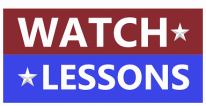An interrogative sentence is a sentence that asks a question. Normally, it ends with a question mark. In rare cases it can end with other marks:
What is your name?
Tell me you name.
Tell me your name!
By grammatical form we have 6 types of questions. Unlike other sources, I distinguish 6 types of interrogative questions, not 3, 4 or 5. This is a general quick overview of the 6 types.
Interrogative Sentence : 6 types
1. General questions (yes-no questions / polar questions)
General questions require a yes or no answer:
Do you smoke? – No.
Interestingly, they can have a yes or no equivalent answer.
Do you smoke? – I am not crazy! (a “no” substitute)
Do you love me? Answer: What do you think? (a rhetorical “yes” substitute)
2. Disjunctive questions (tag questions)
These also require a yes/no answer. Disjunctive questions have a mini-question, or so called question tag at the end of the sentence.
The tag is either positive or negative.
You smoke, don’t you? (the negative question tag)
You don’t love me, do you? (the positive question tail)
We can use other word-tags too:
You don’t love me, right?
3. Alternative questions (choice questions)
An alternative question offers a choice of two or more answers and includes or:
Do you want tea or coffee?
What do you prefer, tea or coffee?
The answer to alternative question will be one of the choices, both, neither, either, nothing, everything, no
What do you prefer, tea or coffee? Answer: Both, please / neither, thanks / no, thanks / tea, please
4. Special questions (wh-questions / non-polar)
Special questions start with a question word:
Where did you go last night?
Why did you go last night?
5. Subject questions (start with who, which of us/you/them, what)
A subject question is a question, the answer to which is the subject of the sentence. The subject is the doer of the action:
Who is running? Pete is running
or the owner of the state:
Who is happy? Pete is happy
6. Subject’s attribute questions (start with what, which, whose, how many, how much)
A subject’s attribute question is a question, the answer to which is subject’s attribute.
Whose boy is happy? My boy is happy
How many boys are running? Five boys are running.
Interestingly, subject related questions are the most difficult to understand. Conversely, by formation, they are more declarative rather than interrogative sentences.
Object questions
I knowingly skipped this type. This type does not require special rules of formation.
Who do you love? My wife.
What did you take? The book.
More on Introduction to Tenses:
